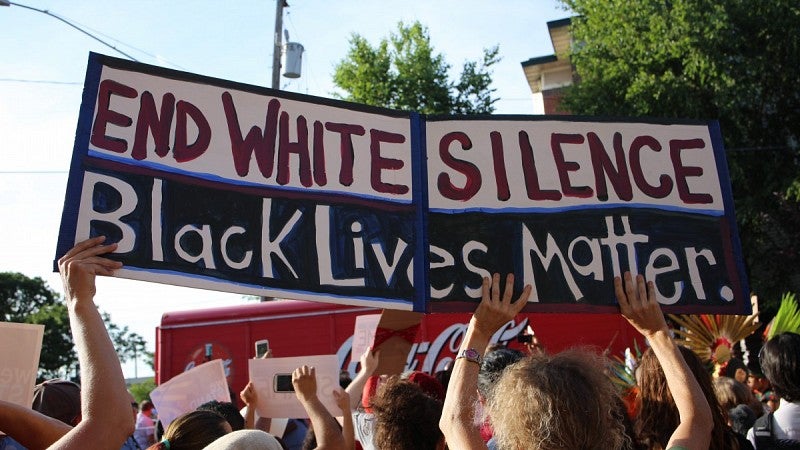
I was nine years old when I was first made aware of my race. I recently joined a new school and told my classmates my mom is the lunch lady. They initially didn’t believe me because she is white and I am brown. They also told me my brother and I weren’t related. We are mixed — he looks more like my mom while I look more like my dad. People would throw in a racist remark from time to time, making me stop and think, was that racist?
I began to educate myself by reading Black authors’ books and taking Black Studies classes during my undergraduate degree. The more I talked about race in my classes, the more I realized the experiences I went through weren’t normal — like avoiding interactions with the police. It wasn’t until I started my master’s studies in 2020 that I found myself forced to discuss race.
I quickly realized my master’s studies would be different from my undergrad, not only because of the increased workload but also because I finally had the chance to use my projects to explore what it meant to be African American.
As people marched in the streets this summer demanding change, some began to educate themselves on race by reading books and listening to podcasts. Some professors changed their syllabus to incorporate more assignments reflecting what was happening in the world.
Unlike when I was younger, there is more material readily available for people to consume, from Netflix’s Dear White People to NPR’s Code Switch podcast. These resources make me feel heard and seen as I try to navigate a world that hasn’t always made space for who I am as a person.
I struggled with my identity for so long as a multiracial person because I didn’t feel connected to one race. I’ve never fit in with one group, and if I did, I felt like I had to choose one race over another. It wasn’t until this summer that I truly leaned into my Black identity.
I felt proud to be one of the few Black women in my master’s program because I had the chance to focus my projects on my lived experiences. I also had the opportunity to get involved with organizations like the National Association of Black Journalists, which I shunned in undergrad.
It was a cathartic experience to educate my peers on issues Black people have to worry about — like BIPOC parents giving their kids the police talk — subjects white people have never thought about twice.
As I get further into my master’s studies, I understand the need to take up space in traditionally white institutions by telling the African American community’s stories in Oregon.
— By Alli Weseman '22
Alli Weseman (she/her/hers) is a first-year student in the SOJC’s multimedia journalism master’s program in Portland. She has freelanced for Portland Monthly Magazine and hopes to work in a newsroom one day. You can find more of Alli’s work at alliwesemanphotography.com.
